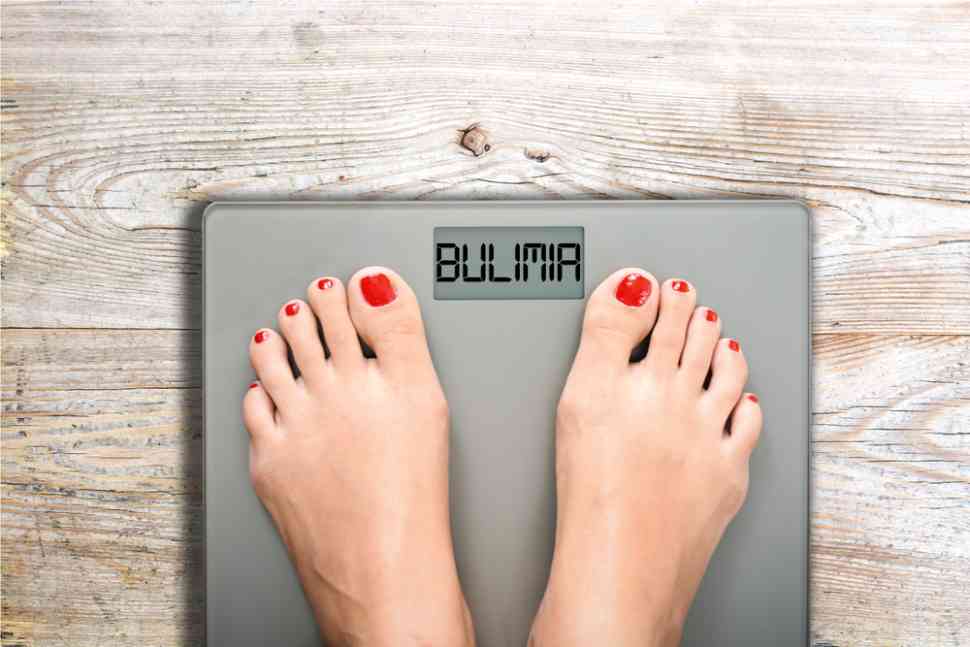The Scientists’ View On Eating Disorders

Adolescents begin to notice the contradictions between the way they behave and the way they would like to behave. They wonder who their real selves are. Along with this question arises one more question, whether they like themselves. To a large extent, the characteristics that give them high self-esteem are the same as those they attributed to their peers some time ago. Charm ranks first as an attribute, especially for girls, and is followed by strong acceptance from peers.
The great resonance that fascination exerts in acceptance between conversations has a negative impact on the self-esteem of girls because many consider themselves unattractive. Research proves that girls have lower self-esteem than boys on average. In early adolescence, there is a sharp decrease in self-esteem.
Defining psychogenic bulimia
The key identifier of psychogenic bulimia is the consumption of a very large amount of food in a very short time. The bulimic person eats not when hungry but out of necessity to resort to food every time they feel stressed or unhappy. The person maintains a relatively normal weight but resorts to hyperphagic crises. Bulimics, like anorexics, are distinguished by a tendency to perfectionism and problematic self-esteem. Although possessed by a great need for control in their lives, bulimics are more impulsive and extroverted. They are distinguished by instability in behavior and incomplete formation of their identity. Unlike anorexics, bulimic people are constantly looking for new experiences; they tend to feel unsatisfied and have difficulty regulating their emotions.
Inducing vomiting offers a regain of control. During the bulimic episode, there is such a loss of control that many bulimics describe their emotional state as ecstatic, as a complete absence from reality. After the bulimic episode, however, the person uses vomiting as a means to prove to themselves that they can do something to restore their sense of control. In addition, the person after the hyperphagic episode feels dislike towards themselves and suffers from terrible guilt. Shedding food gives a quick solution, which soothes the feeling of guilt. In fact, it has been observed that inducing vomiting in bulimia triggers the release of endorphins, which means for many that this behavior causes pleasure and that it can become addictive.
But as in anorexia nervosa, there are two subtypes of bulimia nervosa. One is the laxative subtype, where the person resorts to self-induced vomiting and the use of laxatives and diuretics, and the non-laxative subtype, where the person uses other ways such as fasting or excessive exercise.
It is important to understand that through this way, the person seeks care of themselves, the enjoyment that they may not otherwise experience, or tries to calm down the agony that they may feel for various existing or imaginary reasons. In any case, the provoking factor that pushes the adolescent to this behavior should first be investigated and then treated in a personalized way so that they receive the greatest possible help.
Overeating and its relation to bulimia
The big difference between overeating and bulimia is that in overeating compensatory behaviors are not observed, which is of particular importance and severity. In overeating people usually have increased weight (overweight or obese) as the body absorbs the increased calories consumed. It causes significant problems in everyday life but can also have significant physical effects that make it dangerous.
Eating disorders are more severe than we imagine. They are often given less attention than they deserve and are treated as simple habits, while in reality, they hide important information about the individual’s psychological profile. The attitude each person will adopt regarding food consumption depends strongly on their personality type. For the first time in history and only in developed countries, people can consume as much food as they desire. It is a challenge to control ourselves now that we have abundant food, and we, as a society, will learn how to overcome this new obstacle to our well-being as soon as we get familiar with its existence and the reasons that cause it. Just like in the late 60s, people were completely uneducated regarding the use of drugs and the harm that can come out of their consumption; today, we have to redefine our relationship with food and overconsumption, in general, to stay safe and continue to be happy and productive.
Have you read?
5 Ways to Build Resourceful Leadership Behaviors by Dr. Deana Murphy.
The dreaded ‘R’ word that won’t go away in 2023 by Ingrid Maynard.
The Power and Limitations of AI in Digital Marketing by Ryan Jenkins.
Rising Market Power of Technology Increases Inequality and Destroys Democracy by Mordecai Kurz.
The Impact of Artificial Intelligence on Medical Training and Careers by Dr. Payam Toobian.
Bring the best of the CEOWORLD magazine's global journalism to audiences in the United States and around the world. - Add CEOWORLD magazine to your Google News feed.
Follow CEOWORLD magazine headlines on: Google News, LinkedIn, Twitter, and Facebook.
Copyright 2025 The CEOWORLD magazine. All rights reserved. This material (and any extract from it) must not be copied, redistributed or placed on any website, without CEOWORLD magazine' prior written consent. For media queries, please contact: info@ceoworld.biz








